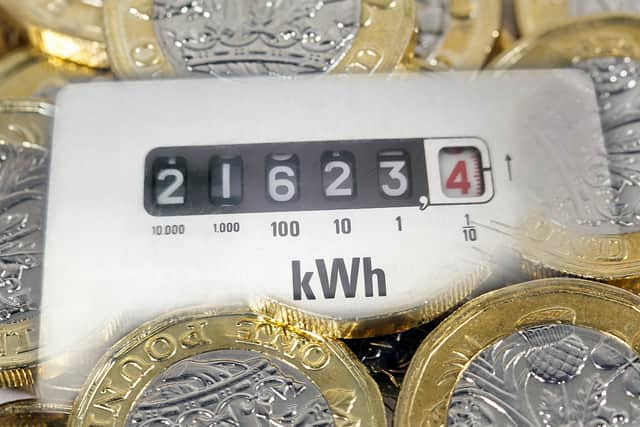When does the energy bills support scheme end? Date Ofgem energy price cap replaces energy price guarantee
and live on Freeview channel 276
Energy bills are set for their biggest change in nine months this weekend, as the government’s energy bills support scheme is replaced by the Ofgem energy price cap.
The energy price guarantee, which was announced during Liz Truss’s brief term as UK Prime Minister in September 2022, has meant bills have been capped at an average of £2,500 a year since last autumn. Its implementation shielded consumers from a sharp increase in the Ofgem prce cap, but also significantly hiked public spending at a time when government borrowing had become much more expensive.
Advertisement
Hide AdAdvertisement
Hide AdThis help with energy bills had been set to become less generous from April but Chancellor of the Exchequer Jeremy Hunt extended it at his Spring Budget over fears the resulting 20% rise in household bills would have worsened the cost of living crisis. With this extension expiring on 1 July and the Ofgem cap set to become significantly less pricey on the same day thanks to a sharp fall in wholesale prices, households should see a fall in their costs.
Ahead of the change, bill payers across the UK are being urged to check their meter readings. There have also been calls for people to make sure they are not due the £400 energy bills discount before the applications window closes this week.
So, when does the energy price guarantee end - and what does it mean for your energy bills?
What is the energy price guarantee?
In one of her first acts as Prime Minister, Liz Truss announced the energy price guarantee. It came after it was revealed the Ofgem energy price cap would be rising 80% to £3,549 from October 2022.
Advertisement
Hide AdAdvertisement
Hide AdPut very simply, the scheme involves the government paying energy suppliers the difference between a price cap and whatever the wholesale cost of energy is. Your bill may have been higher or lower than the £2,500 cap depending on your usage. The move has cost the Treasury billions of pounds - although it is thought to have turned out to be cheaper than first feared thanks to the milder conditions we saw during winter and spring.


Under Truss’s original plans, the scheme would have kept bills at £2,500 for a typical household until October 2024. But after she was ousted as Prime Minister, her successor Rishi Sunak and his Chancellor Jeremy Hunt initially opted to make the support less generous from April 2023.
When does the energy price guarantee end?
Technically, the energy price guarantee is legislated to remain in place until April 2024. The current rate was due to become less generous from 1 April 2023, although this got pushed back to 1 July 2023 in the Spring Budget. For the 12 months following on from this date, the cap was due to be 20% more expensive (an average of £500 a year extra at £3,000 for a typical household).
But the government kept the £2,500 limit in place for an additional three months as it was expected that lower wholesale energy costs would be reflected in the Ofgem price cap by July - something which has transpired. By doing so, Rishi Sunak’s administration avoided passing on a surge in costs to households - the energy bills grants scheme also ended in April - that campaigners warned would damage the country’s health and push people into poverty.
Advertisement
Hide AdAdvertisement
Hide AdGiven the Ofgem limit for July to September is set to be £2,074 (for a typical household over a year) and the energy price guarantee will sit at £3,000 from 1 July, the Ofgem cap will supersede the government’s support package. It means the average household will see their gas and electricity bills go down by around £35 a month.
While the energy price guarantee will no longer determine our bills, it will still exist until next April. But it is expected that the Ofgem cap will remain at around £2,000 until then, with energy consultancy Cornwall Insight - whose forecasts have been highly accurate throughout the energy crisis - not currently expecting any spikes in prices.
What about the other energy support schemes?
As well as the energy price guarantee, our energy bills have been reduced by several other government schemes.


The energy bills support scheme, which was introduced by Rishi Sunak when he was Boris Johnson’s Chancellor, took money off our bills from October 2022 until March 2023. The £400 grant, which subsidised £66 to £67 of our energy bills over the six-month period, has now come to an end.
Advertisement
Hide AdAdvertisement
Hide AdThe energy bills relief scheme - the business equivalent of the energy price guarantee - has been shielding businesses from rocketing bills since October 2022. Having started life as a price cap, it is now a discount on wholesale prices that will remain in place until April 2024.
Comment Guidelines
National World encourages reader discussion on our stories. User feedback, insights and back-and-forth exchanges add a rich layer of context to reporting. Please review our Community Guidelines before commenting.
